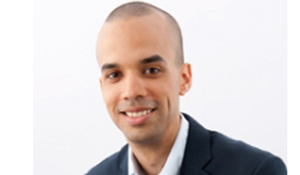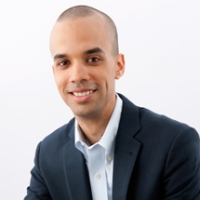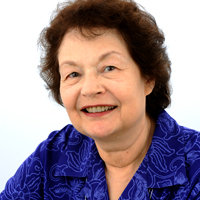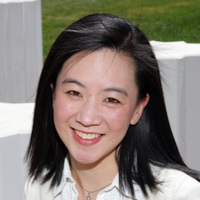Wellesley Experts on Issues That Could Change the Course of the Elections

From Women’s Rights to Social Media Manipulation to the Impact of the Ground Game, Wellesley Experts Comment on Top Issues That Could Change the Course of the Elections
WELLESLEY, Mass.—Wellesley College’s world-class faculty are available to comment on the topics that matter most as we approach Election Day 2012. Experts can speak on issues relating to the presidential election, the Massachusetts senatorial race, and the contest for the Massachusetts 4th Congressional district. Please contact mediarelations@wellesley.edu to request an interview or more information.
 ELECTION INSIGHT: “One of the most dangerous and disturbing facets of this election cycle is the persistence of right wing groups in their efforts to disenfranchise voters. This is not a regional problem; it is a national crisis, with cases of vote suppression and malfeasance in states from Florida to Ohio to Arizona. These efforts constitute a direct attack on American and global democracy, and an explicit insult to the entire American electorate—we should take this very personally. These transgressions are especially audacious and unforgivable because we have documented evidence of similar tactics during each of the past three presidential elections.” –Michael P. Jeffries, expert on voting rights and the cultural significance of President Barack Obama
ELECTION INSIGHT: “One of the most dangerous and disturbing facets of this election cycle is the persistence of right wing groups in their efforts to disenfranchise voters. This is not a regional problem; it is a national crisis, with cases of vote suppression and malfeasance in states from Florida to Ohio to Arizona. These efforts constitute a direct attack on American and global democracy, and an explicit insult to the entire American electorate—we should take this very personally. These transgressions are especially audacious and unforgivable because we have documented evidence of similar tactics during each of the past three presidential elections.” –Michael P. Jeffries, expert on voting rights and the cultural significance of President Barack Obama
Michael P. Jeffries’ election-related research examines theories of racism and the cultural significance of Barack Obama. He is the author of the forthcoming book, Paint the White House Black: Barack Obama and the Meaning of Race in America (Stanford University Press, January 2013). According to Jeffries, “Basic rights for non-whites in America, including voting rights, immigration, and the right to health and wellness have come under siege during the Obama presidency. Though Obama may not frame these debates as ‘racial’ issues, there is no denying their racial impact, and no way to understand why they are so contentious without talking about racial politics.”
 ELECTION INSIGHT: “Kudos to Mary Follano, the Long Island mother who, during last Tuesday night's debate, asked Gov. Romney which deductions he was going to cut in order to bring down tax rates. On Tuesday, for the first time in the debates, Mitt Romney actually explained to the audience which of these deductions he would cut. The answer is—all of the above.” –Marion Just, expert on political debates, women’s reproductive rights (Excerpted from Just’s Huffington Post blog)
ELECTION INSIGHT: “Kudos to Mary Follano, the Long Island mother who, during last Tuesday night's debate, asked Gov. Romney which deductions he was going to cut in order to bring down tax rates. On Tuesday, for the first time in the debates, Mitt Romney actually explained to the audience which of these deductions he would cut. The answer is—all of the above.” –Marion Just, expert on political debates, women’s reproductive rights (Excerpted from Just’s Huffington Post blog)
Marion Just is the William R. Kenan, Jr. Professor of Political Science at Wellesley College and a research associate of the Joan Shorenstein Center on Press, Politics and Public Policy at the John F. Kennedy School of Government at Harvard University. She is a consultant to the Project for Excellence in Journalism, a member of the advisory board of the Reform Institute, and the editorial board of the Harvard International Journal of Press Politics. She is a co-author of several books, including We Interrupt This Broadcast: …How to Improve Local News and Win Ratings and Crosstalk: Citizens, Candidates and the Media in a Presidential Campaign. Her current research projects concern political campaigns, psychological aspects of voting, patterns of news, politics on the Internet, and media coverage of women leaders.
 ELECTION INSIGHT: “Using social media for predicting political elections is highly controversial. In times of political elections, the stakes are high, and advocates may try to support their cause by active manipulation of social media. For example, altering the number of followers can affect a viewer’s conclusion about candidate’s popularity.” –Panagiotis T. Metaxas, expert on social media and the elections
ELECTION INSIGHT: “Using social media for predicting political elections is highly controversial. In times of political elections, the stakes are high, and advocates may try to support their cause by active manipulation of social media. For example, altering the number of followers can affect a viewer’s conclusion about candidate’s popularity.” –Panagiotis T. Metaxas, expert on social media and the elections
Panagiotis “Takis” Metaxas, professor of computer science and founder of Wellesley College’s Media Arts and Sciences Program, with Wellesley College colleague, Hess Fellow and Visiting Assistant Professor Eni Mustafaraj, studies the effects of social media manipulation on real time Google search results. In 2011, Metaxas and Mustafaraj were awarded a nearly $500K National Science Foundation grant to study trustworthiness on the social web. In an October 2012 article in the American Association for the Advancement of Science (AAAS) journal Science, Metaxas and Mustafaraj discuss the role of social media in elections and how manipulation of social media can both affect a voters’ perception of a candidate and compromise the voters’ decision-making abilities.
 ELECTION INSIGHT: “The most underreported aspect of this year's election is the important of the ground game. In a close presidential election like the one we’re seeing this year, the election can be won or lost in the field.” –Hahrie Han, expert on Congressional elections, voter motivation, and political participation among underrepresented populations
ELECTION INSIGHT: “The most underreported aspect of this year's election is the important of the ground game. In a close presidential election like the one we’re seeing this year, the election can be won or lost in the field.” –Hahrie Han, expert on Congressional elections, voter motivation, and political participation among underrepresented populations
Hahrie Han is Knafel Associate Professor in the Social Sciences at Wellesley College. Her research focuses on voter motivation, political participation, organizations, and congressional elections and the way citizens, especially those in underrepresented populations, connect to politics. Her book, Moved to Action: Motivation, Participation, and Inequality in American Politics (2009), examines the way people become motivated to participate in politics, focusing on ways to engage underprivileged populations in political action.
ABOUT WELLESLEY COLLEGE
Since 1875, Wellesley College has been a leader in providing an excellent liberal arts education for women who will make a difference in the world. Its 500-acre campus near Boston is home to 2,400 undergraduate students from all 50 states and 75 countries. For more information, visit www.wellesley.edu.
PRESS CONTACTS:
Sofiya Cabalquinto, Wellesley College, 781-283-3321, scabalqu@wellesley.edu
Anne Yu, Wellesley College, 781-283-2901, ayu@wellesley.edu
